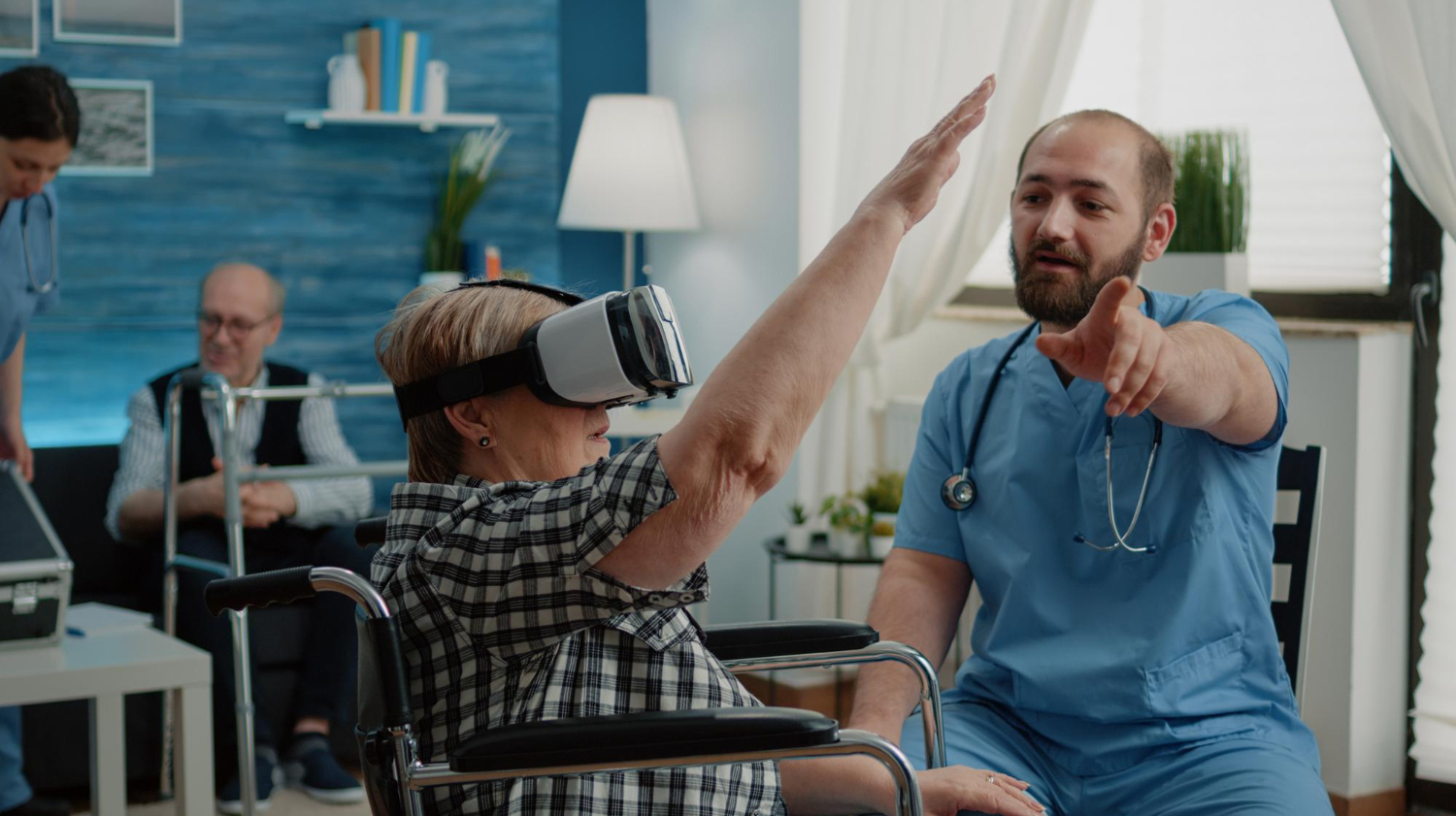
Blog
This Month in Healthcare IT:
Remarkable e-Health News in February
The field of healthcare IT is inherently dynamic and constantly evolving to new points. Here at Tiga Healthcare Technologies, we're dedicated to always advancing the latest technology by remaining actively informed about the industry. Staying current is crucial to supporting the advanced technology that truly addresses the ever-evolving healthcare IT landscape. Thus, every month, we track exciting improvements, innovative discoveries and important shifts that reshape patient care and health data management.
As February comes to a close, we're excited to share the healthcare developments that have inspired us.
Here are the top 10 developments that caught our attention in February 2024:
1. Deloitte published a report titled ‘2024 Global Healthcare Industry Outlook: Managing Transformation,’ highlighting key trends to guide industry leaders and stakeholders through profound healthcare change.

Deloitte, a preeminent global consulting firm, released a report named ‘2024 Global Healthcare Industry Outlook: Managing Transformation,’ delving into the unprecedented changes happening in the healthcare sector. Authored by the Deloitte Global Health & Human Services Sector and enriched by the insights of consultants from worldwide, the report addresses the key role that artificial intelligence (AI), sustainability initiatives, social care integration, cost optimization and workforce adaptation will play in shaping the future of global healthcare.
Also, the report addresses challenges such as labor shortages, rising costs and the environmental impact of healthcare-related pollution by examining different cases worldwide. Thankfully, it suggests a potential solution: the digital delivery of healthcare services primarily through AI applications.
2. Microsoft and OpenAI published their research titled 'Staying ahead of threat actors in the age of AI', which examines activities associated with known threat actors and strategies to counter them.

In a joint effort, Microsoft and OpenAI spotlight a vital aspect of data security in their research on the increasing cyberattacks in the age of AI. Their study explores the tactics and deceptive methods of threat actors, revealing their use of Large Language Model (LLM) technology and AI as a new tool for hostile activities.
This announcement underlines Microsoft's commitment to responsible AI development and its fight against cybercrime by establishing guiding principles for specific threats, such as advanced persistent manipulators (APMs). The research aims to promote proactive defense strategies against misuse with steps like disrupting threat actors and developing safety mechanisms with AI tools.
3. HHS expands Qualified Health Information Networks (QHIN) with two new partners for better healthcare interoperability.

The U.S. Department of Health and Human Services (HHS) announced the joining of CommonWell Health Alliance and Kno2 to the Qualified Health Information Networks (QHINs). Now, these two organizations can participate in the Trusted Exchange Framework and Common Agreement (TEFCA), a nationwide healthcare interoperability system for secure health data exchange and collaboration.
The inclusion of CommonWell Health Alliance and Kno2 increases the total QHINs to seven, enhancing patient care through structured data. This move is crucial for promoting seamless collaboration and secure health information sharing across the healthcare landscape.
Source: https://www.hhs.gov/about/news/2024/02/12/hhs-expands-tefca-by-adding-two-additional-qhins.html
4. Nature study underlines promising roles of VR and AR in knee pain and osteoarthritis rehabilitation.

Nature study finds promise in virtual reality (VR) and augmented reality (AR) applications in digital healthcare for knee pain rehabilitation, showing significant improvements in balance and pain levels. Researchers Longfei Guo, Shuoqi Li, Shihao Xie, Lin Bian and Shazlin Shaharudin aim to review and assess the impact of digital health (DH) systems on pain and physical function among patients diagnosed with knee joint pain with a meta-analysis.
They analyzed data from four different databases between January 2003 and September 2023 and selected eight research papers, encompassing 473 patients. The meta-analysis outcomes revealed that DH intervention significantly improved the balance and pain levels of patients with knee joint pain and osteoarthritis.
Source: https://www.nature.com/articles/s41598-024-53853-z
5. The MATCH IT Act of 2024 will address patient misidentification in the US.

The bipartisan MATCH IT Act of 2024, introduced by Rep. Mike Kelly (R-PA) and Rep. Bill Foster (D-IL), aims to enhance patient safety and privacy in the healthcare sector by tackling the persistent issue of patient misidentification. Patient misidentification poses significant risks to patient safety and privacy, while also imposing financial burdens on patients and healthcare providers. According to research by Black Book Research, duplicate records and inaccurate patient identification contribute to repeated medical care expenses, denied claims and significant costs to the healthcare system annually.
The bill seeks to mitigate medical errors, reduce unnecessary costs and improve care coordination by establishing a standardized definition for "patient match rate" and improving the accuracy of patient matching with their medical records through better standardization of demographic information in certified health IT products.
6. Healthcare IT professionals analyzed which emerging technologies are currently shaping the digitalization of healthcare and found intriguing results.

Healthcare IT Today engaged with leaders in healthcare technology to uncover the most pivotal and promising emerging trends. Important experts from different parts of the world talked about determining trends in 2024.
Among these, integrating Real-Time Location Systems (RTLS) for enhanced communication channels and patient workflow stood out as crucial. Also, AI-enabled decision-making through advanced analytics promises actionable insights for patients and providers. Furthermore, advancements in clinical documentation accuracy, facilitated by technologies like voice recognition, can increase operational efficiency.
The Rural Emergency Hospitals (REH) concept offers essential services with outpatient and emergency care focus. Additionally, digital therapeutics, cloud-based Electronic Health Records (EHR) and practical integration of AI mark significant strides in healthcare innovation.
7. India's 2024-2025 budget prioritizes healthcare, with more funding on innovation and AI integration.

India's Ministry of Finance has unveiled the interim budget for 2024-2025, showcasing a substantial commitment to healthcare. With an allocation of $10.8 billion, up from $9.5 billion in the previous year, the budget underscores a prioritization of the health sector. Notable initiatives include a significant boost in funding for biotechnology research and development, which now stands at $132.5 million, nearly double the previous year's budget. Moreover, the budget introduces interest-free loans to states to foster research and innovation in healthcare technology. While stakeholders commend the budget's investments in healthcare infrastructure and research, they emphasize the need for concrete plans regarding the integration of artificial intelligence in healthcare.
Source: https://ramaonhealthcare.com/industry-seeks-clarity-on-indias-2024-tech-investment-in-health/
8. JAMIA research indicates that most EHR companies in the US are using APIs to extend healthcare interoperability.

Journal of the American Medical Informatics Association (JAMIA) published a study by multiple organizations, including the University of California San Francisco, Office of the National Coordinator for Health Information Technology, the California Health Care Foundation, and ScaleHealth. The study examined API integrations in healthcare technology, focusing on the adoption of the Fast Healthcare Interoperability Resources (FHIR) standard by electronic health record (EHR) companies.
Notably, the survey found that 57% of respondents used both standards-based and custom APIs for EHR integration, facing challenges like high costs and lack of testing data. These findings support concerns raised by the health IT community regarding limited API scope and entry barriers.The Office of the National Coordinator for Health Information Technology’s (ONC) HTI-1 final rule aims to alleviate some of these barriers by standardizing requirements for FHIR endpoints.
Source: https://www.healthcareitnews.com/news/most-vendors-now-using-apis-expand-ehr-functionality-says-onc
9. 14 healthcare organizations joined Digital Health Collaborative for digital healthcare advancements and adoption.

Fourteen healthcare and consumer organizations have joined the Digital Health Collaborative, a new organization supported by the Peterson Health Technology Institute (PHTI) in the US. The Collaborative brought together provider groups, purchasers and end-users committed to evidence-based, cost-effective and equitable digital health solutions by sharing collective learnings and collaborating on needed research and programs to help raise confidence and adoption in digital health. Moreover, the Collaborative will offer a Research and Impact Fund for aligned research and programs.
10. A recent survey demonstrated South Korea’s need to tailor digital health tech to the elderly’s needs.

A recent study conducted in South Korea by researchers from Seoul National University, Yonsei University and private institutions examined the usage patterns of healthcare applications and wearable health devices among older Koreans, particularly focusing on differences between frail and healthy seniors. Given South Korea's rapidly aging population, addressing the digital health needs of older adults is crucial.
Surveying 505 respondents aged 65 and older, the study revealed that while a quarter of the participants used healthcare apps, with frail seniors more inclined to use them for healthcare information and guidance, only a small fraction used wearable devices, primarily for measuring physical activity. The study underscores the importance of developing customized digital health solutions that cater to the unique requirements of especially frail seniors, emphasizing the significance of identifying their specific purposes and expectations.
Source: https://www.mobihealthnews.com/news/asia/tailor-fit-digital-health-tech-elderlys-needs-study

As we complete our February review, we reaffirm our commitment to maintaining leadership in the intersection of technology and health. We sincerely appreciate your ongoing partnership on this journey. The top healthcare reports, scientific articles and legal regulations emphasize that genuine digital transformation is crucial for meeting healthcare goals in 2024 and beyond.
Recognizing that AI and digital transformation are the future, the healthcare sector needs to productize AI more efficiently and ensure the reliability of outcomes. At Tiga, we take on this responsibility. We once again see that our focus on AI and healthcare data underscores our alignment with industry advancements and signifies progress in the right direction.
In light of the rising use of AI and data analytics, our ShareMind- Health Analytics Platform shines as a precise solution. Merging pre-made machine learning models with sensitive health data analysis, the platform empowers researchers to frame safe models.
Moreover, our Healthcare Interoperability solutions are in line with the increasing need for standardized health data analytics, reporting and collaboration. The World Economic Forum and Boston Consulting Group’s emphasis on electronic health records (EHR) resonates deeply with our Personal Health Record (PHR) System. Specifically, our Enterprise Master Patient Index powerfully resonates with the coming MATCH IT Act of 2024 in the US. This product ensures patient safety and privacy by consolidating data from multiple resources of health institutions, addressing the problem of patient misidentification. It can mitigate medical errors and improve care coordination with the standards, governance and tools for accurate linking of reference and identity data.
Overall, our range of solutions - including Healthcare Interoperability, Patient Engagement, Drug Traceability, AI & Analytics, Pharma Management, Population Health, Personalized Healthcare and Hospital Information System - prove that we are at the core of healthcare IT trends. Looking ahead, let's persist in pioneering, staying up-to-date and innovating in the healthcare sector. Together, we can shape the future of healthcare IT in unprecedented ways!









